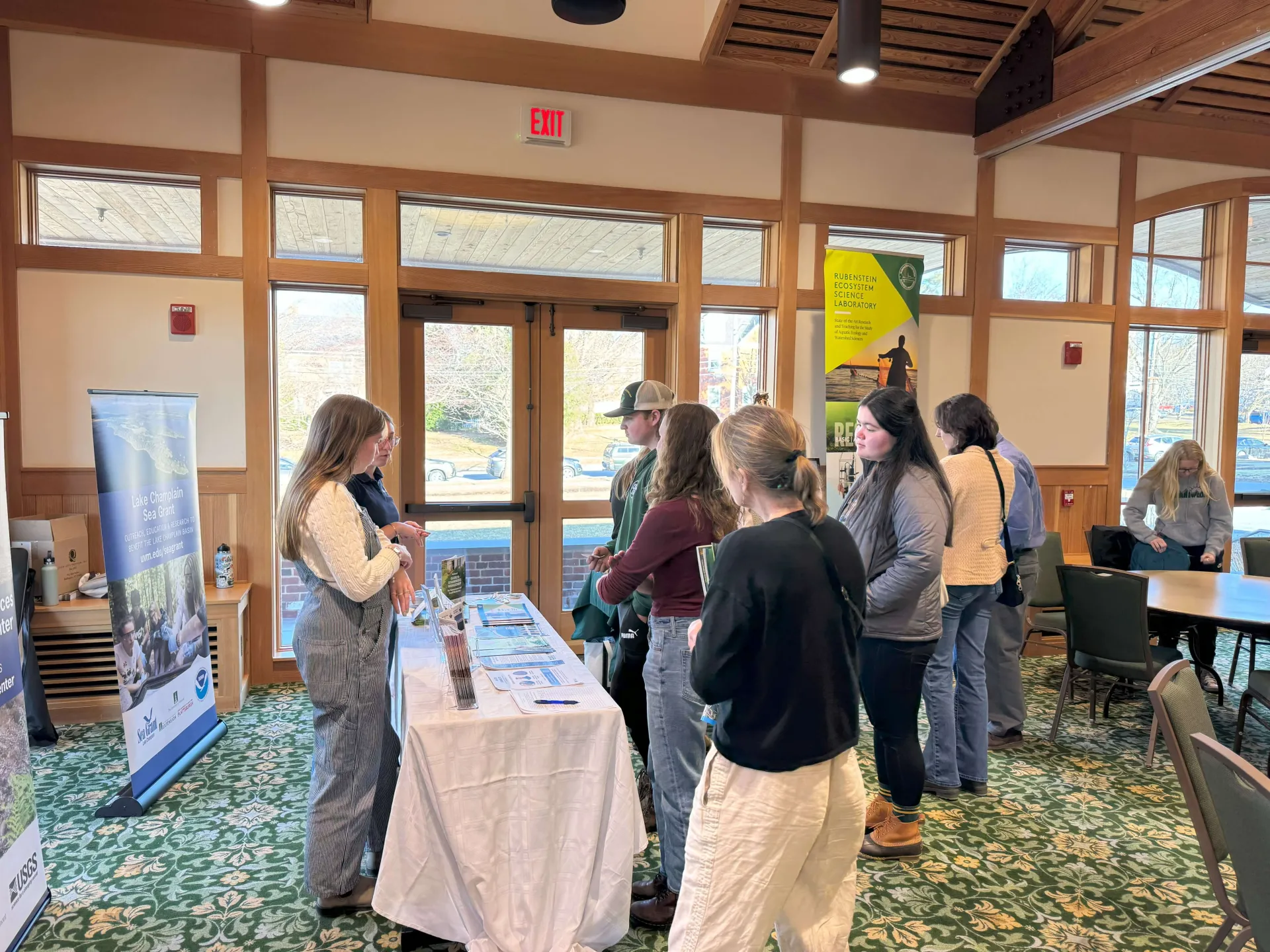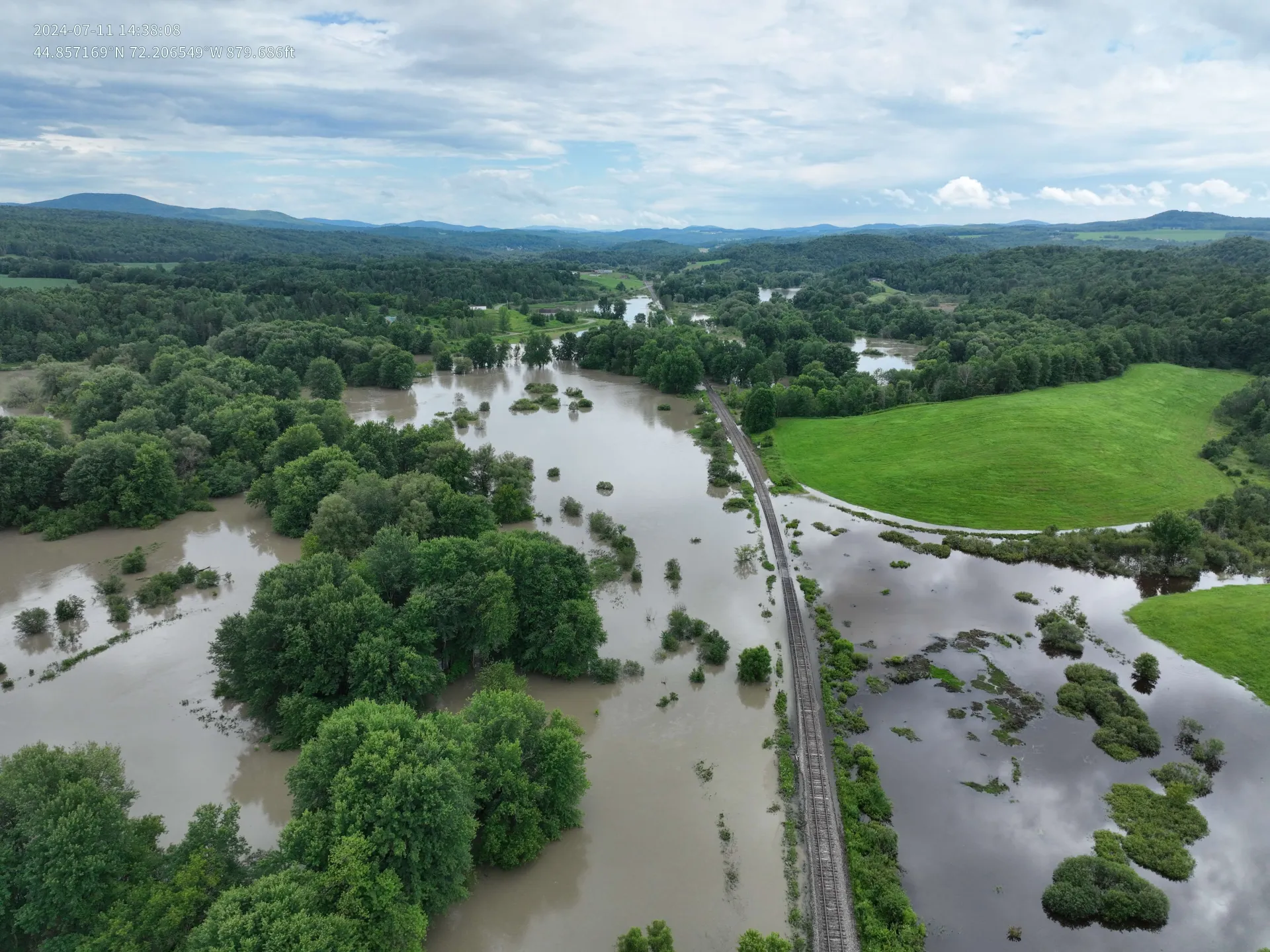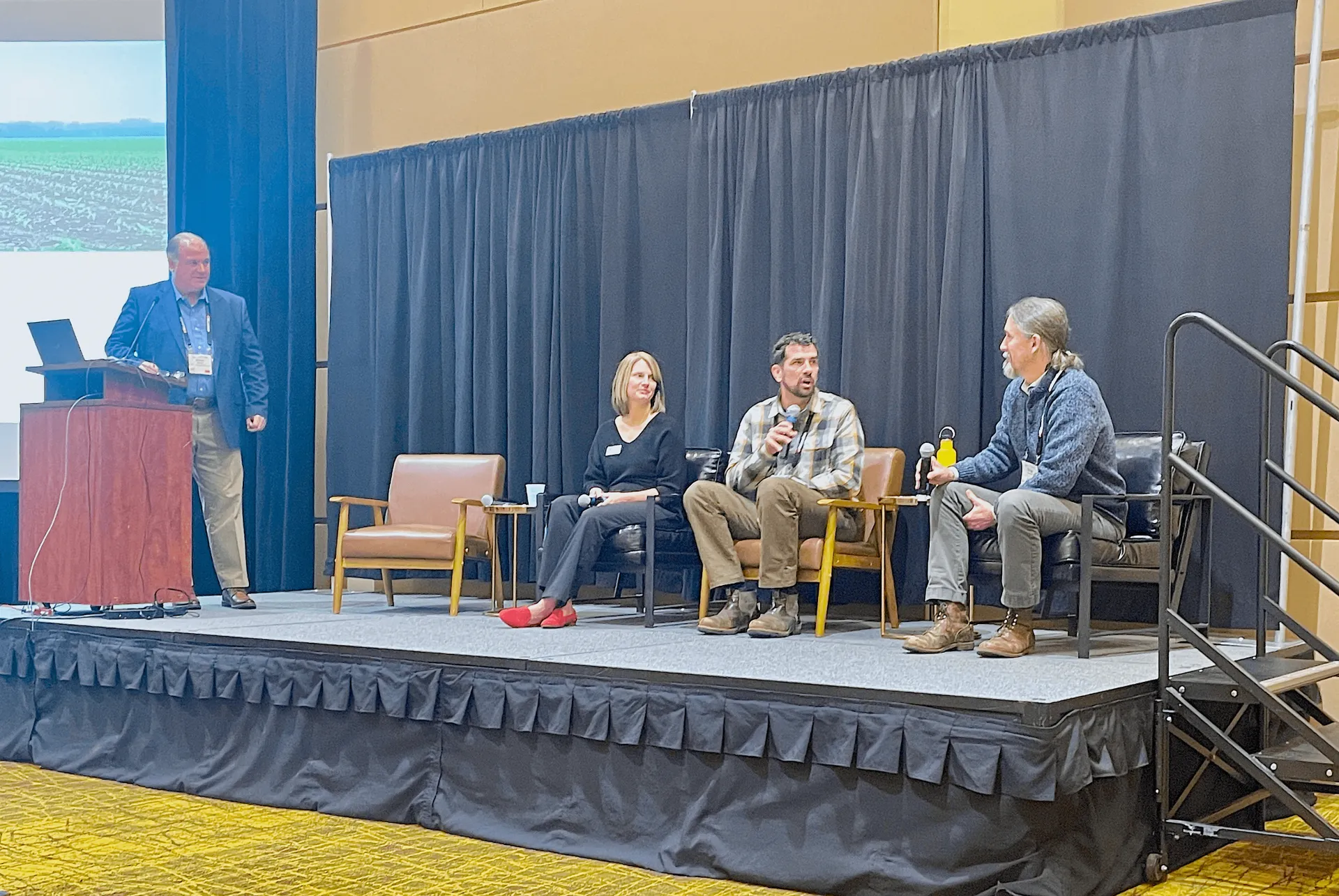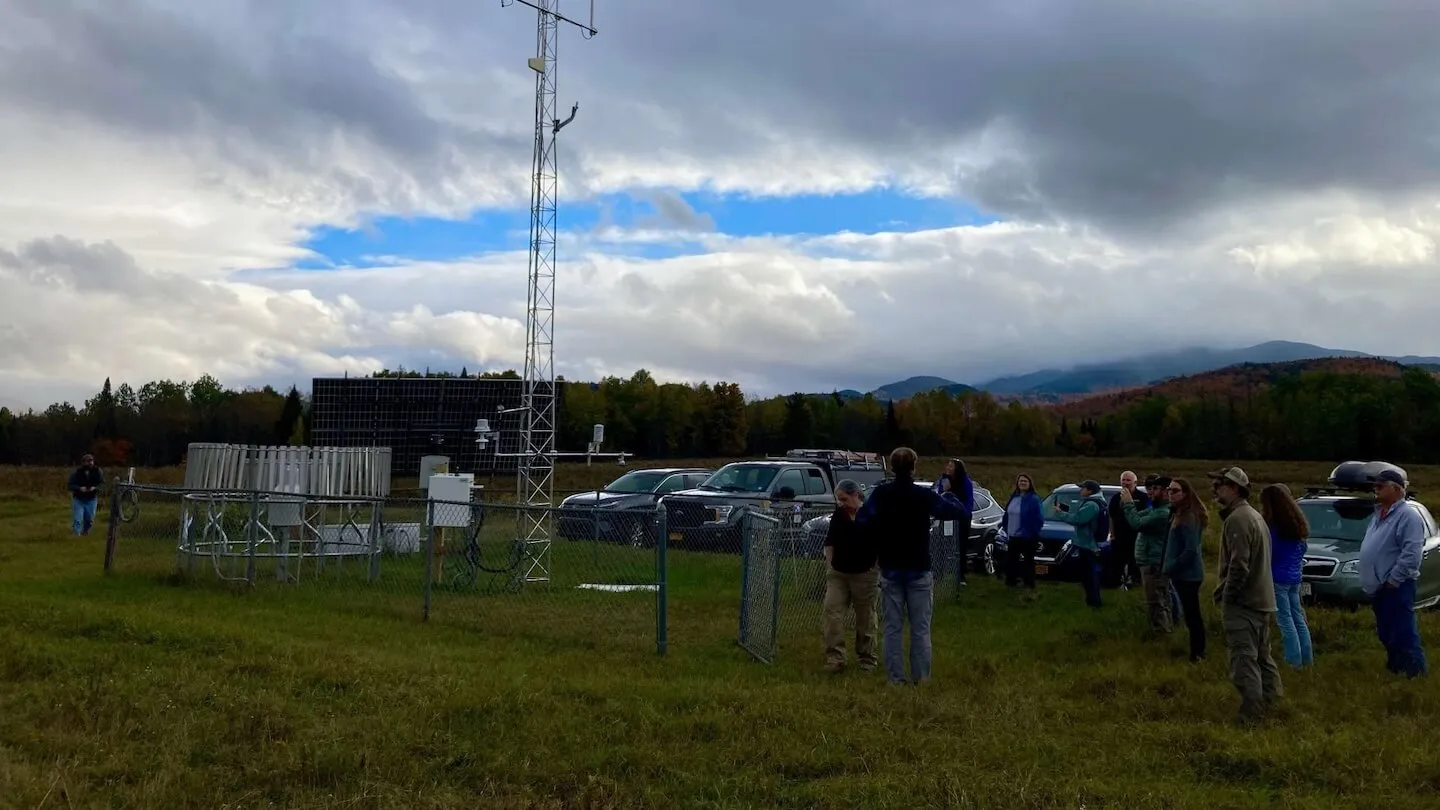On Friday, March 21, Lake Champlain Sea Grant and the UVM Water Resources Institute hosted the University of Vermont’s first-ever World Water Day celebration. Recognized around the globe, World Water Day is an annual United Nations Observance that raises awareness about the importance of freshwater and the need to protect this vital resource. Since 1993, this observance aims to tackle the global water crisis and raise awareness of the 2.2 billion people living without access to safe water.
This year’s theme, designated by UN-Water—the UN’s coordination mechanism on water and sanitation—highlighted the role of glaciers in maintaining global freshwater supplies. While glaciers aren’t found in the Lake Champlain Basin, the event used the opportunity to share a more local concern: warming winters in the Northeast.
Dr. Alix Contosta, an ecosystem ecologist from the University of New Hampshire, was the keynote speaker for the event. She spoke to an engaged audience of around 50 people, and explained what exactly scientists mean when they reference “warming winters”. Warming winters are a vast topic to study, with many changing conditions impacting different ecosystems in novel ways. Constanta’s talk focused on the vernal window—the short period between when snow has melted but before trees have fully leafed out. This window is important for many understory plants, which take advantage of full sunlight to begin growing before the forest canopy returns.
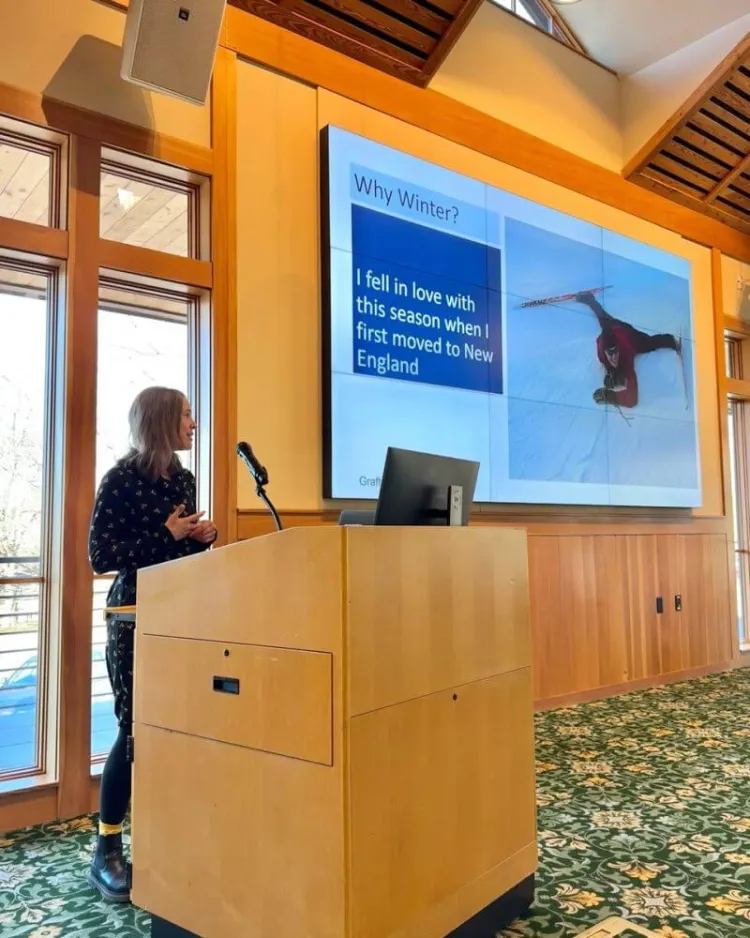
Despite the sunny afternoon, Contosta noted that snow passed through the Champlain Valley just the night before but melted in the morning sun—a familiar sign of the shifting seasons and an indicator that we were in the vernal window. Dr. Contosta’s research shows that this window is lengthening as the region experiences warmer, less snowy winters. These changes may significantly impact plant growth patterns, forest dynamics, and broader ecological processes like water flow, carbon uptake, and nutrient cycling.
Contosta reflected on the UVM event, noting that it "focused on the importance of water resources for our local communities and beyond. The mix of science, art, and education created many ways to engage in conversations about water. I was happy to be included and have the chance to talk about snow, which is by far my favorite water-related topic."
After the keynote, attendees enjoyed a lively Q&A session, followed by networking and tabling with regional partners. Representatives from the Rubenstein Laboratory, Northern Woodlands Magazine, Adirondack Watershed Institute, Vermont Rural Water, Lake Champlain Committee, and the UVM Spatial Analysis Lab were on hand to share how their work supports clean water and healthy ecosystems across the Lake Champlain Basin and beyond.
“As an inaugural World Water Day celebration, this event did a great job of connecting global issues to our local context. Our speaker and partners really engaged the audience and showcased the myriad connections between water, the environment, and local communities. Overall, this event was a great way to start a new tradition at UVM,” said Anne Jefferson, Lake Champlain Sea Grant director.
